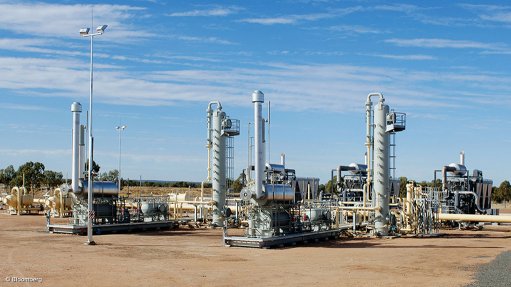
Photo by: Bloombeg
PERTH (miningweekly.com) – The oil and gas industry has welcomed a decision of the Senate’s Environment and Communications Committee to reject a Greens’ Bill proposing Commonwealth intervention into state regulation of land access and a ban on hydraulic fracturing (fracking).
The bill, which was introduced by a private senator, proposed to ban the use of fracking operations for coal seam gas (CSG), shale gas and tight gas, and to make both gas and coal mining activities unlawful without written authorisation from land-holders.
In its review, the Senate committee recommended that the Senate not pass the Bill, noting that fracking and competing land uses were principally the responsibility of the various states.
It further noted that aspects of the Bill would create uncertainty or would simply not work in practice, noting that large amounts of compensation given to private land-holders to secure a tenement could also reduce the wider public benefit that could arise from state ownership of the resource.
“The gas industry understands that access to private land is a sensitive issue. The industry operates under rigorous state regulation, which requires agreements to be made with land owners before explorers can enter private land,” said Australian Petroleum Production & Exploration Association (Appea) CEO Malcolm Roberts.
“Land owners are entitled to compensation. Exploration is prohibited within set distances of buildings and other improvements.”
He pointed out that the gas industry had more than 5 000 access agreements with land owners in Queensland alone, adding that, with its relatively small footprint, gas could readily coexist with other land uses.
“The committee rightly found that the Bill would be ‘unworkable’.
“There is no justification for the Commonwealth to override the power of state and territory governments to regulate access to resources belonging to the states,” Roberts said.
“People rightly expect that governments adopt a sensible and science-based approach to resource development and that this should deliver benefits to all Australians through significant royalty streams, jobs and investment.
“Such an approach is a key reason why, by decade’s end, the oil and gas industry’s contribution to national gross domestic product is expected to be more than A$55-billion a year, while taxes and royalties paid to governments are expected to exceed A$13-billion a year.”
He added that the current phase of investment in the gas industry had seen the reinvigoration of many rural towns and communities across Australia, with the building and funding of vital infrastructure.